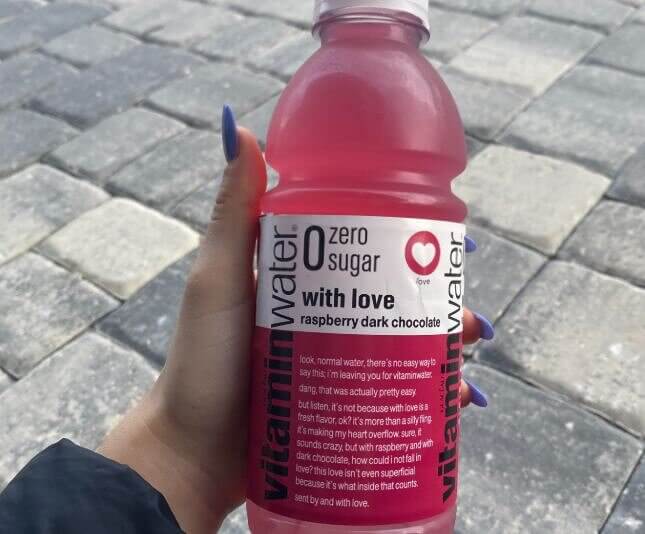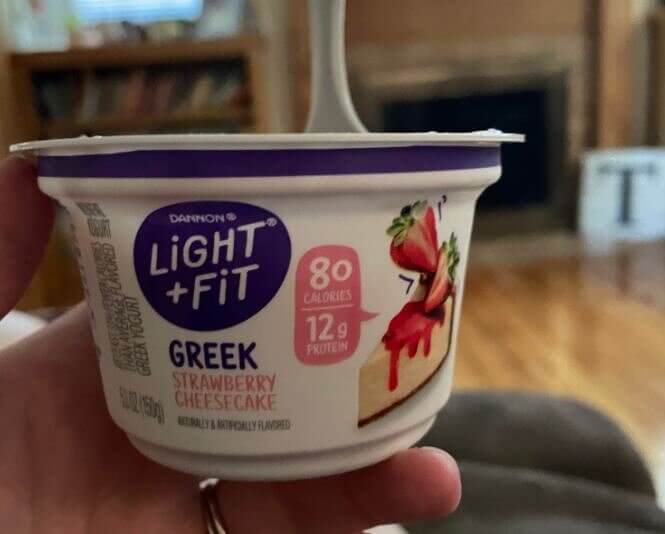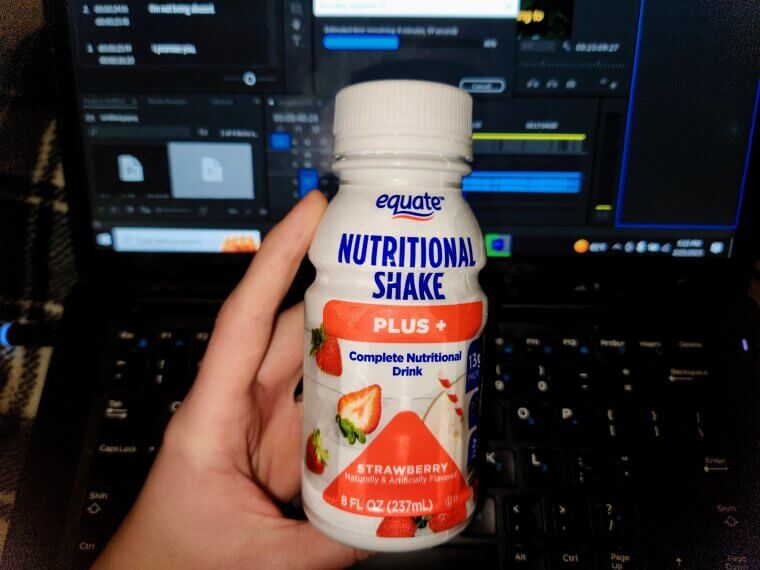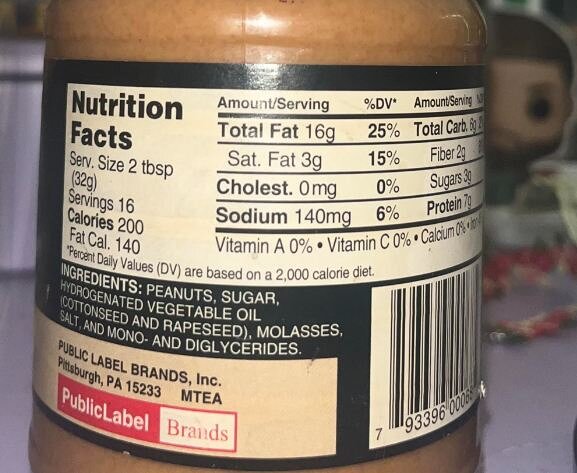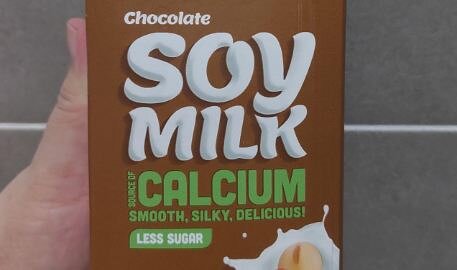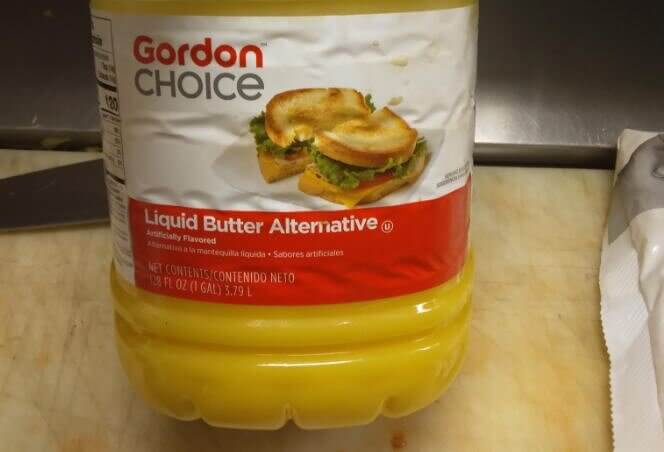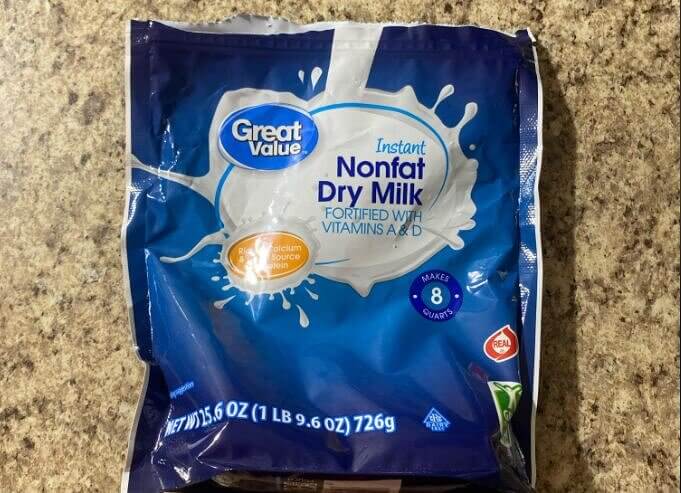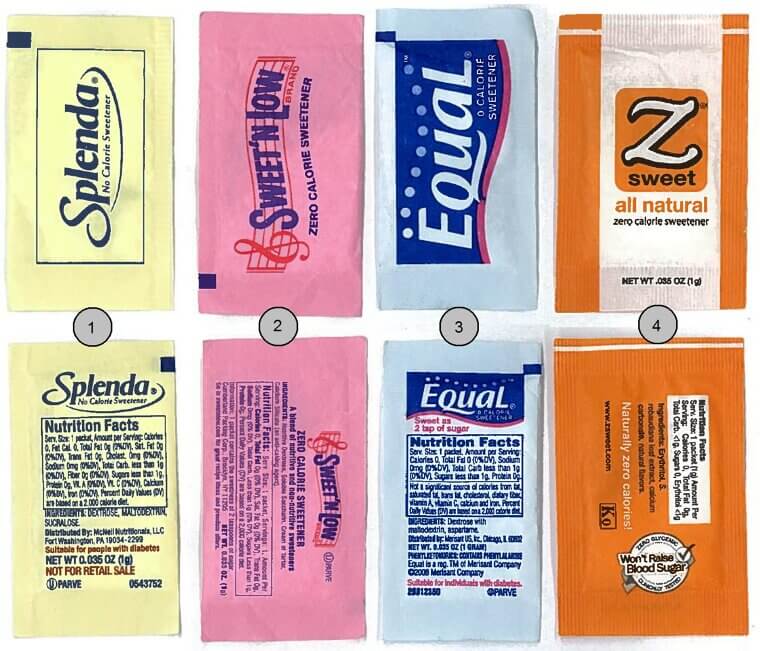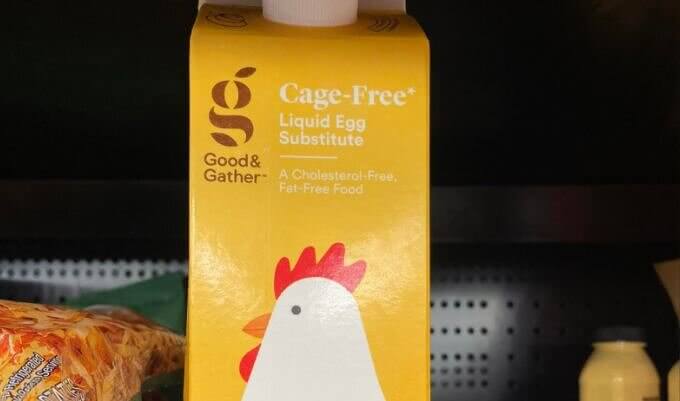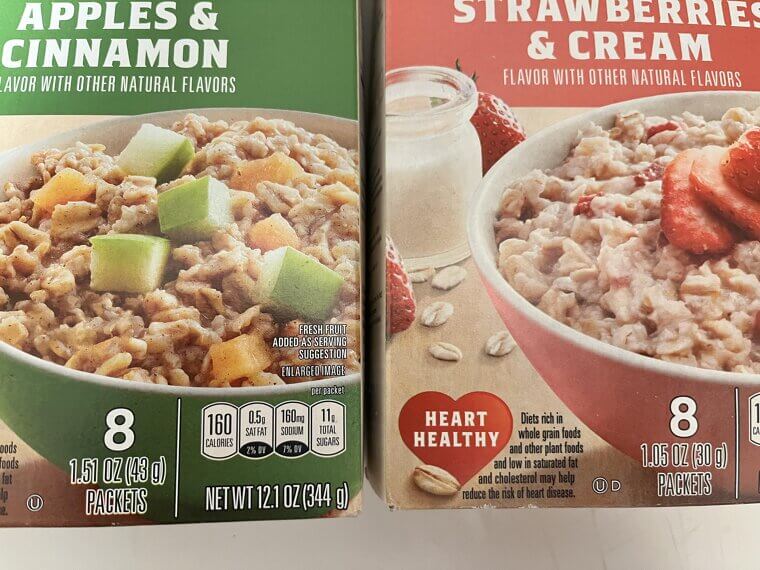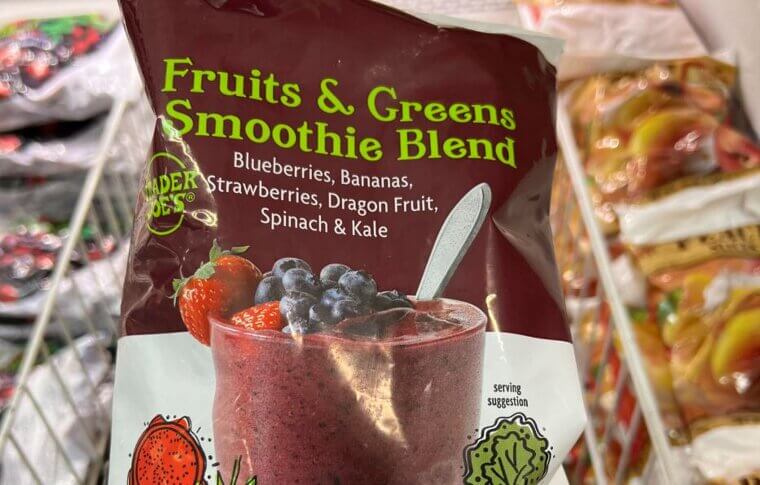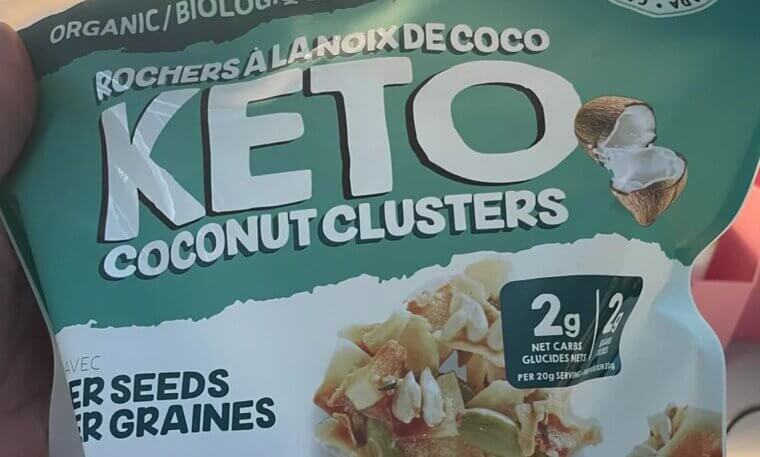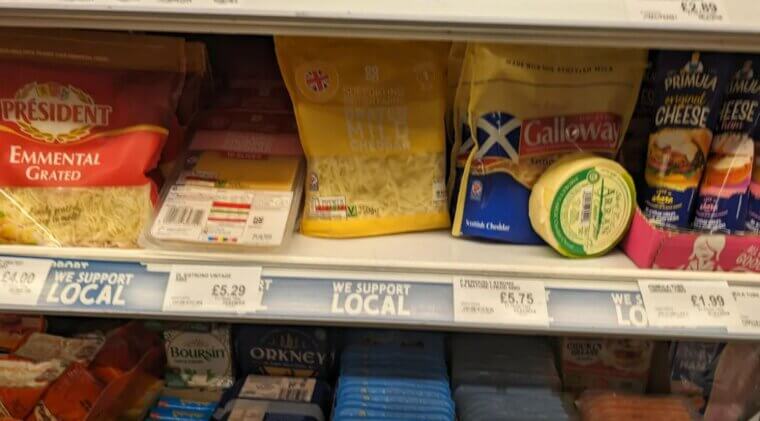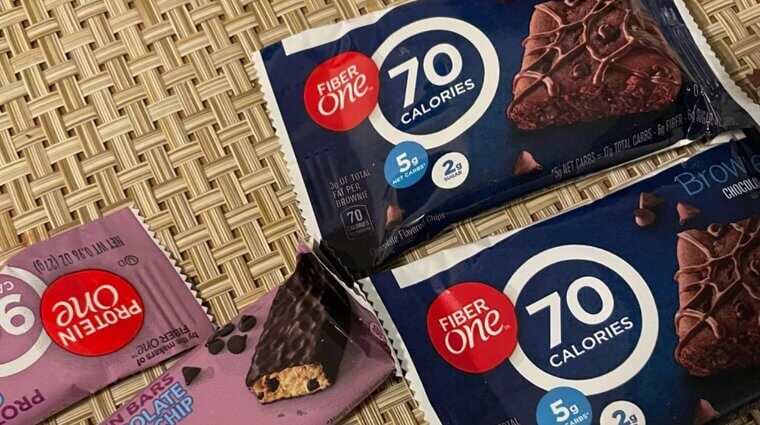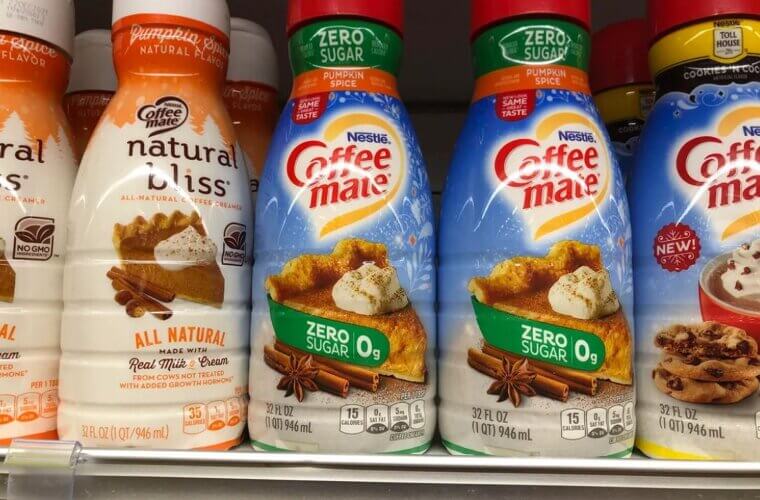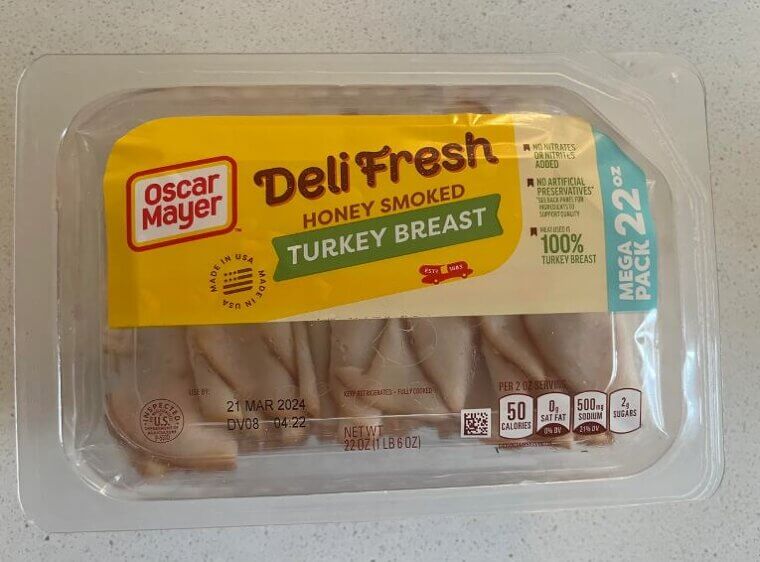Vitamin Water
Once promoted as a healthy hydration option, vitamin-infused water became a trendy alternative to regular water. Despite claims of being beneficial, these drinks often hide behind misleading labels. While they promise vitamins and zero sugar, they sometimes contain artificial ingredients and minimal nutritional value. This realization has led many to question whether such beverages truly support a healthy lifestyle. As awareness grows, consumers are turning back to simpler, natural hydration solutions.
In re-evaluating these choices, many have returned to basic options like plain water. It underscores the importance of understanding what truly benefits our health.
Margarine
Once hailed as a healthier alternative to butter, margarine was a staple in households seeking lower cholesterol and fat intake. Advertisements boasted its plant-based origins and heart-friendly benefits. However, many margarines were made with hydrogenated oils, introducing trans fats into diets, posing significant health risks. Over time, the perception shifted, revealing the detrimental effects of these fats on heart health. This change highlights the evolving understanding of diet and wellness.
Today, consumers are more cautious, seeking alternatives with natural ingredients over synthetic trans fats. Margarine serves as a reminder to question health claims.
Ayds Appetite Suppressant
Ayds appetite suppressants were once touted as revolutionary aids for weight loss. Marketed with promises of effectiveness and safety, these products claimed to help dieters shed pounds effortlessly. However, the changing landscape of health awareness and the unfortunate association with a similarly named disease led to their decline. Consumers began questioning the ingredients and health implications, realizing that quick fixes often masked deeper issues. This product reflects how marketing can overshadow health.
Today, we prioritize long-term health over quick weight loss solutions. Understanding the importance of balanced diets and exercise is crucial, reminding us to question past and present fads alike.
Snack Mate Cheese
Once hailed as a convenient alternative to traditional cheese, Snack Mate cheese spreads promised a quick and easy way to enjoy cheesy flavors. Marketed in aerosol cans, they were seen as a modern kitchen marvel. However, these processed cheese spreads are now considered unhealthy due to high sodium and artificial additives. Modern consumers prefer natural cheeses over processed options. Snack Mate shows how convenience once trumped health considerations.
Today, people avoid processed cheese spreads for healthier, more natural options. The shift reflects increased awareness of nutrition and the impact of processed foods.
Diet Soda
Diet sodas were once hailed as a healthier alternative to sugary drinks, promising a guilt-free way to enjoy a refreshing beverage. Advertised as low-calorie and beneficial for weight management, they quickly became a popular choice among health-conscious consumers. However, research has since revealed potential health risks associated with artificial sweeteners used in these drinks. Concerns about their impact on metabolism and appetite have led many to reduce their consumption.
Today, people are more cautious about artificial sweeteners and their effects. Despite being marketed as healthier, diet sodas have lost their appeal to those prioritizing natural ingredients and overall well-being.
Orange Soda Craze
Once hailed as a deliciously refreshing beverage, orange soda boasted of its fruity essence and vibrant taste. Marketed as a healthier substitute for sugary drinks, it captured the hearts of many. However, the drink's high sugar content and artificial flavorings were downplayed in its advertisements. The allure of a fruit-inspired beverage masked the lack of actual fruit juice and nutritional value. Today, we approach such sodas with more caution.
Modern consumers value authenticity and nutritional transparency. Orange soda serves as a reminder to scrutinize ingredients, despite marketing claims. Healthier choices are now celebrated.
Low-Cal Yogurt
Once hailed as a guilt-free dessert option, low-calorie yogurts like this were marketed as the ultimate healthy snack. Promising flavors reminiscent of decadent treats, they attracted health-conscious consumers. However, many failed to realize these yogurts often contain artificial sweeteners and additives. While low in calories, the nutritional value and long-term health effects raised concerns. Today, choosing whole, natural yogurts is often recommended for a truly balanced diet.
Despite its appealing packaging and promises, this product exemplifies the shift in consumer awareness toward whole foods over processed alternatives. Understanding ingredients is key to making healthier choices.
Sun Tan Oil
In the past, sun tan oil was promoted as a way to achieve a perfect, healthy glow. Advertisements showcased it as a way to enhance beauty and appear vibrant. However, with modern research, we now understand the risks associated with unprotected sun exposure, such as skin cancer and premature aging. The idea of basking in the sun without protection seems reckless today. Sunscreen has replaced these oils as the safer choice.
Today, we prioritize sun safety and awareness. The shift from tanning oils to protective sunscreens reflects our growing understanding of skin health.
SnackWell’s Cookies
In the 1990s, SnackWell’s cookies became a staple for anyone seeking a healthier snack option, thanks to their “fat-free” label. Marketed as a guilt-free indulgence, they were widely believed to be a smart choice for maintaining a healthy diet. However, these treats were packed with sugar and additives to compensate for the lack of fat, negating their health benefits. Today, we know that balance, not deprivation, is key to wellness.
Once a symbol of healthy snacking, these cookies remind us that not all "fat-free" foods contribute to a nutritious diet. Balance and ingredient awareness trump marketing claims.
Instant Soup Craze
Instant soups like Cup-a-Soup were once celebrated for their convenience and marketed as a healthy meal option. Quick and easy, they promised nourishment in just minutes. However, with a closer look, these instant solutions often contain high levels of sodium and artificial additives. What was once seen as a wholesome meal now raises concerns about heart health and nutrition. The shift in perception highlights the importance of ingredient transparency.
Today, many seek homemade alternatives to avoid additives and excessive sodium. This shift reflects growing awareness about the impact of processed foods on health.
Nutritional Shakes
Nutritional shakes like this once promised a convenient path to balanced health. Marketed as a "complete nutritional drink," they seemed ideal for on-the-go lifestyles. However, many such products are laden with sugars and artificial ingredients, raising concerns about their actual health benefits. Modern dietary advice emphasizes whole foods, making these shakes less appealing. What was once a quick fix now represents a cautionary tale about processed nutrition.
Despite their allure, these shakes often fall short of true nourishment, overshadowed by concerns about additives and sugar content. The shift toward natural foods highlights the importance of choosing wisely.
Peanut Butter Concerns
Once heralded as a protein-packed powerhouse for health enthusiasts, peanut butter has faced scrutiny due to its less wholesome ingredients. Many brands include hydrogenated oils, which are linked to unhealthy trans fats, and added sugars, contributing to excess calorie intake. Despite being marketed as a simple, nutritious option, the hidden components have made consumers wary. With awareness growing, people now seek alternatives that offer purity and transparency.
Rethinking pantry staples is key to aligning our diet with genuine health goals.
Wonder Bread
Once marketed for its convenience and soft texture, this bread was seen as a staple of healthful eating. However, its highly processed nature and lack of nutritional value have led many to reconsider its place in a balanced diet. Enriched with synthetic vitamins, it was touted as a health breakthrough. Today, people are more cautious about additives and prefer whole grain options. This shift reflects a broader awareness of nutrition.
Wonder Bread represents how trends evolve, reminding us to question health claims. In hindsight, we've learned to prioritize whole, unprocessed foods over convenience-driven choices.
Honey Comb Cereal
Once marketed as a wholesome breakfast option, this cereal boasted added vitamins and an irresistible taste, promising a great start to the day. However, modern nutrition science highlights the high sugar content and artificial additives that overshadow its benefits. While it was once a staple for families seeking convenience and sweetness, many now opt for options with lower sugar and more natural ingredients, realizing its misleading marketing. This shift reflects growing awareness of healthier choices.
As we learn more about nutrition, many are opting for cereals with whole grains. This cereal stands as a reminder of past marketing tactics that blurred the lines between taste and health.
Soy Milk
In the past, soy milk was widely promoted as a healthy alternative to dairy, praised for its calcium content and smooth taste. Many consumers embraced it, believing it to be a natural, more nutritious choice. However, concerns arose over added sugars, potential allergens, and genetically modified ingredients. As awareness grew, so did skepticism about its health benefits. Today, many opt for other alternatives, questioning soy milk’s place in a balanced diet.
While once heralded as a health-conscious choice, soy milk's appeal has diminished. Consumers now seek transparency, prioritizing ingredients and nutritional value over marketing claims.
Liquid Butter Alternative
Once hailed as a healthier substitute for traditional butter, liquid butter alternatives promised a low-fat, heart-friendly option for cooking and baking. Advertisers touted them as guilt-free additions to any diet, emphasizing their convenience and versatility. However, closer inspection reveals these products often contain artificial flavors, preservatives, and unhealthy trans fats. Modern nutritional guidelines now warn against their regular consumption. The initial allure of easy health benefits has faded considerably.
As consumers become more health-conscious, awareness of these artificial substitutes has grown. Many now prefer natural ingredients, rejecting the once-popular liquid butter alternative in favor of more wholesome options.
Nonfat Dry Milk
Nonfat dry milk was once hailed as a convenient and healthy alternative to fresh milk. It’s fortified with vitamins and minerals, making it seem nutritionally superior. However, the processing methods can result in the formation of oxidized cholesterol, which is associated with health risks. Moreover, it lacks the taste and creamy texture of fresh milk, leading many to avoid it. Today, people are more cautious about such processed substitutes.
Ultimately, awareness and choice have shifted. Consumers now prefer fresh, less processed options, emphasizing taste and natural nutrients. Nonfat dry milk is a relic of past marketing trends.
Iodized Sea Salt
Iodized sea salt was once celebrated as an essential source of iodine, a nutrient crucial for thyroid health. Promoted as a healthier alternative to regular table salt, it quickly found a place in pantries worldwide. However, modern dietary shifts and the availability of iodine through diverse food sources have lessened its necessity. As consumers become more conscious about sodium intake, the appeal of iodized sea salt has somewhat diminished.
Though once hailed for its iodine content, today's health-conscious consumers often seek alternatives. The quest for balanced diets and lower sodium has shifted focus from iodized options.
Artificial Sweeteners
Once hailed as a healthier alternative to sugar, artificial sweeteners like Splenda, Sweet'N Low, and Equal became staples in many households. Marketed as zero-calorie options, they seemed perfect for those wanting to cut down on sugar intake without sacrificing sweetness. However, concerns over potential health risks have surfaced, leading some to question their long-term safety. Studies have suggested links to metabolic issues, prompting many to reconsider their use.
As we learn more about these artificial sweeteners, it's clear that moderation and informed choices are key. Opting for natural alternatives might be a better path for those mindful of their health.
Cage-Free Substitutes
Once promoted as a healthier alternative to traditional eggs, liquid egg substitutes boasted benefits like being cholesterol-free and fat-free. However, increased awareness of food additives and processing has shifted consumer preferences. Many now opt for whole, organic eggs due to their natural nutrient content. The initial allure of these substitutes often overlooked the value of consuming less processed foods. This change in perspective highlights evolving attitudes toward dietary health.
Modern consumers increasingly focus on the benefits of natural, less processed foods. This shift away from substitutes reflects a broader trend toward transparency and health-conscious choices.
Processed Breakfast Cereals
Once hailed as heart-healthy, these flavored breakfast cereals once graced many tables as a quick and nutritious start to the day. Promising the benefits of whole grains, they often overlooked the significant amounts of added sugars and artificial flavors. The convenience came at a cost, as regular consumption could contribute to health issues rather than prevent them. With modern insights, consumers now seek more wholesome options. Balancing flavor with genuine nutrition became the new trend.
In today’s health-conscious world, opting for less processed alternatives is essential. Whole, unflavored grains offer a truly healthier choice.
Fruits & Greens Smoothie
Smoothies like this one have long been marketed as a quick path to better health, promising a dose of fruits and vegetables in a convenient form. However, many of these pre-packaged blends are laden with added sugars and preservatives, which can counteract their health benefits. Consumers are becoming more aware of the nutritional content, realizing that these options may not always align with a truly healthy lifestyle. Fresh, whole ingredients are often preferred.
Reevaluating our choices can lead to healthier habits, emphasizing fresh produce over processed options. Choosing wisely helps support overall well-being.
Keto Snacks
Keto snacks surged in popularity, marketed as a healthier alternative for weight loss. Promising low-carb indulgence, these treats claimed to help shed pounds while satisfying cravings. However, many keto snacks are high in saturated fats and artificial additives, contradicting their healthful image. Nutrition experts emphasize whole, natural foods over processed options. The allure of quick results often overshadows long-term health impacts.
Keto snacks once symbolized a quick fix, but they mask health risks beneath convenience. Prioritizing natural ingredients now trumps their marketed benefits.
Light Ice Cream
Once hailed for satisfying cravings with fewer calories, light ice cream brands like the one pictured were often seen as a guilt-free indulgence. Promoted as a healthier alternative to traditional ice cream, they boasted lower calorie counts and enticing flavors. However, the reality is that these products can contain artificial sweeteners and additives. These ingredients may not align with natural eating goals. Consumers now prioritize whole, unprocessed foods.
As awareness grows, many opt for natural, nutritious options instead of processed alternatives. Understanding ingredients and nutritional content helps guide healthier choices.
Cheese Products
Once regarded as a crucial part of a balanced diet, many cheese products were marketed as essential sources of calcium and protein. However, modern research highlights that processed cheeses are often high in saturated fats and sodium, leading to potential health risks such as heart disease. The additives and preservatives used in these products can also be concerning. As consumers become more health-conscious, they are steering away from heavily processed cheese varieties.
Today, there's a growing preference for natural, less processed dairy options. Consumers are opting for organic and artisanal cheeses, emphasizing quality over convenience.
Protein and Fiber Bars
Once hailed as staples of a healthy diet, protein and fiber bars promised a convenient source of essential nutrients. Marketed as low-calorie and high-fiber snacks, they seemed perfect for weight management and digestive health. However, these bars often contain added sugars and artificial ingredients, which can negate their benefits. Many consumers now prefer whole foods and homemade snacks, realizing that these bars may not be as wholesome as advertised.
With modern awareness, many are turning away from processed snacks. Emphasizing natural ingredients and balanced nutrition is key to truly healthy eating.
Coffee Creamers
Once hailed as a healthier alternative to traditional cream or milk, coffee creamers became a household staple for those seeking convenience and flavor variety. However, their ingredient lists often reveal a concoction of artificial flavors, hydrogenated oils, and sweeteners, which can contribute to health issues over time. Modern consumers are now more cautious, opting for natural or minimally processed alternatives. The shift reflects increasing awareness about what we consume.
As we scrutinize labels more than ever, coffee creamers have lost their "healthy" allure. Consumers now prioritize clean ingredients over artificial additives.
Processed Meats
While sliced turkey breast has been a staple in many health-conscious diets, it’s now viewed with more scrutiny. Many processed meats contain additives and preservatives, which can negatively impact health over time. Despite being marketed as convenient and low in calories, the sodium content is often high, raising concerns about potential effects on blood pressure and heart health. The shift toward fresh, unprocessed options reflects a growing awareness of these hidden health risks.
Choosing whole, unprocessed meats can offer better health benefits. By opting for fresh cuts, we avoid additives, preservatives, and excess sodium often found in processed alternatives.

